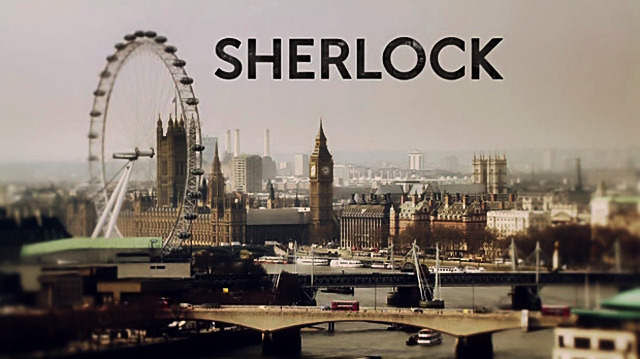The concept of ‘Minjok’ is a specific type of
nationalism created in 20th century present in South Korea. While it
is very much based on historical background of Korea and emphasizes Korean identity
and racial greatness, the concept is rather calculatively crafted by the
government to perform particular purposes.
 The
concept of ‘Minjok’ is distinct from
other types of romantic nationalism as it implies collective anger and victim
mentality. As Saint Exupery said ‘If you want to build a ship, don’t drup up
the men to gather wood, divide the work and give orders. Instead, teach them to
yearn for the vast and endless sea’, rather than giving out orders to the
people, Korean national leaders fostered fear and sense of danger in the
citizens towards Korea’s big enemies, especially North Korea as mentioned above.
President Park cleverly utilized North Korea and the people’s innate fear
towards North Koreans. He labeled North Korean people and anybody who follows
them (or seems to follow them) as “the Reds”(빨갱이) and promoted
people to fear them and feel they are in danger all the time. A typical
strategy for this is making films or writing books about what kinds of bad
things they have done to us. He defined North Korea as South Korea’s main enemy
and constantly reported their evilness and cruelty to the people. Same thing
was done with Japanese Imperialists. Korean government aggressively introduced
what Japanese people have done through all sorts of media and formed anti-Japanese
sentiments inside all Koreans. Especially, conflict on Dokdo and Korean comfortwomen in Japanese army are being the representative ones. Combined with self-pride
of Korea made through ‘Dangun’ legend and all sorts of proud historical events,
people felt their national greatness has been injured and built up hostility
towards them. In other words, it is a necessary illusion, pride and self-esteem
combined with anger and sense of danger.
The
concept of ‘Minjok’ is distinct from
other types of romantic nationalism as it implies collective anger and victim
mentality. As Saint Exupery said ‘If you want to build a ship, don’t drup up
the men to gather wood, divide the work and give orders. Instead, teach them to
yearn for the vast and endless sea’, rather than giving out orders to the
people, Korean national leaders fostered fear and sense of danger in the
citizens towards Korea’s big enemies, especially North Korea as mentioned above.
President Park cleverly utilized North Korea and the people’s innate fear
towards North Koreans. He labeled North Korean people and anybody who follows
them (or seems to follow them) as “the Reds”(빨갱이) and promoted
people to fear them and feel they are in danger all the time. A typical
strategy for this is making films or writing books about what kinds of bad
things they have done to us. He defined North Korea as South Korea’s main enemy
and constantly reported their evilness and cruelty to the people. Same thing
was done with Japanese Imperialists. Korean government aggressively introduced
what Japanese people have done through all sorts of media and formed anti-Japanese
sentiments inside all Koreans. Especially, conflict on Dokdo and Korean comfortwomen in Japanese army are being the representative ones. Combined with self-pride
of Korea made through ‘Dangun’ legend and all sorts of proud historical events,
people felt their national greatness has been injured and built up hostility
towards them. In other words, it is a necessary illusion, pride and self-esteem
combined with anger and sense of danger.
 As
discussed above, ‘minjok’ has been working as a catalyst for people to make
progress faster. However, this doesn’t mean that the concept can remain that
way, unchanged forever. Until now, most of the developments of the nation were
based on what is done inside the nation: economic production, social movements
and political advances. However, as the society develops and improves,
countries around the world are more related to each other. The concept of ‘Minjok’ can be a huge obstacle in this
situation. With anger and repulsion toward other countries prevailing inside
us, deep and truthful communication will never be made. Also, ‘Minjok’ might work as a shield blocking
foreign people from becoming a part of Korean society, which will hurt human
equality and will worsen the nation’s overall image. Lastly, it will slow down
the true meaning of globalization. As deep communication will not occur very
frequently, global interactions and information exchanges will occur somewhat
less than other countries relatively. This concept surely needs to be updated
as the society has changed.
As
discussed above, ‘minjok’ has been working as a catalyst for people to make
progress faster. However, this doesn’t mean that the concept can remain that
way, unchanged forever. Until now, most of the developments of the nation were
based on what is done inside the nation: economic production, social movements
and political advances. However, as the society develops and improves,
countries around the world are more related to each other. The concept of ‘Minjok’ can be a huge obstacle in this
situation. With anger and repulsion toward other countries prevailing inside
us, deep and truthful communication will never be made. Also, ‘Minjok’ might work as a shield blocking
foreign people from becoming a part of Korean society, which will hurt human
equality and will worsen the nation’s overall image. Lastly, it will slow down
the true meaning of globalization. As deep communication will not occur very
frequently, global interactions and information exchanges will occur somewhat
less than other countries relatively. This concept surely needs to be updated
as the society has changed.
The concept of ‘Minjok’ was first introduced to Korea by
Japanese imperialists as they first mentioned it to show Korean and many other Asian
countries’ races are not different from Japanese ones. Through this, Japanese
colonists tried to unite Japanese colony to create a big East Asian Bond.
Korean intellectuals naturally opposed this notion, but ironically, applied the
same strategies to unite the Korean people. For instance, Shin Chae-ho,
historian at that time, added ancient myths, legends and tales into his interpretation
of history in his book <조선상고사>. He especially
emphasized that Koreans are all sons and daughters of Dangun, a god-like king
of ancient Korean country. He tried to encourage people to come together, have
faith in themselves and fight against Japanese colonists.
Few decades
later, president Park Jung-Hee has developed this concept and made ‘Minjok’ for the first time. As his
policies were aimed for economic growth and prosperity, he needed to make
people work harder according to his orders and endure sacrifices if necessary.
While he gave out strong, strict orders to the people and led the economic
plans, he also controlled people’s minds by arguing Korean people are of one
blood and all belongs to one family. This developed people’s community spirit
and cooperation in work places which led to efficient accomplishment of goals.
He also wanted
to make people feel proud of them being a Korean so that they will develop
romantic nationalism and become loyal to the government’s orders and devote
themselves more for the growth of the country. He combined this concept with
his prohibition of traveling foreign countries. This is when Korean local
tourism started booming, as rural areas started to advertise their products and
themselves exaggeratingly, for example the best apple of all is from Chungju
and the best orange around the world is from Jeju.
President Kim
Young-sam has raised the proud even higher by launching the segyehwa policy, or
Korean globalization. He has developed Korean traditional cultures and started
to make ‘national heritage’ such as samulnori(사물놀이) or Andong
Hahoe village(안동 하회마을) which emphasizes Korea’s cultural
superiority but is not actually old ones but artificially made.
 The
concept of ‘Minjok’ is distinct from
other types of romantic nationalism as it implies collective anger and victim
mentality. As Saint Exupery said ‘If you want to build a ship, don’t drup up
the men to gather wood, divide the work and give orders. Instead, teach them to
yearn for the vast and endless sea’, rather than giving out orders to the
people, Korean national leaders fostered fear and sense of danger in the
citizens towards Korea’s big enemies, especially North Korea as mentioned above.
President Park cleverly utilized North Korea and the people’s innate fear
towards North Koreans. He labeled North Korean people and anybody who follows
them (or seems to follow them) as “the Reds”(빨갱이) and promoted
people to fear them and feel they are in danger all the time. A typical
strategy for this is making films or writing books about what kinds of bad
things they have done to us. He defined North Korea as South Korea’s main enemy
and constantly reported their evilness and cruelty to the people. Same thing
was done with Japanese Imperialists. Korean government aggressively introduced
what Japanese people have done through all sorts of media and formed anti-Japanese
sentiments inside all Koreans. Especially, conflict on Dokdo and Korean comfortwomen in Japanese army are being the representative ones. Combined with self-pride
of Korea made through ‘Dangun’ legend and all sorts of proud historical events,
people felt their national greatness has been injured and built up hostility
towards them. In other words, it is a necessary illusion, pride and self-esteem
combined with anger and sense of danger.
The
concept of ‘Minjok’ is distinct from
other types of romantic nationalism as it implies collective anger and victim
mentality. As Saint Exupery said ‘If you want to build a ship, don’t drup up
the men to gather wood, divide the work and give orders. Instead, teach them to
yearn for the vast and endless sea’, rather than giving out orders to the
people, Korean national leaders fostered fear and sense of danger in the
citizens towards Korea’s big enemies, especially North Korea as mentioned above.
President Park cleverly utilized North Korea and the people’s innate fear
towards North Koreans. He labeled North Korean people and anybody who follows
them (or seems to follow them) as “the Reds”(빨갱이) and promoted
people to fear them and feel they are in danger all the time. A typical
strategy for this is making films or writing books about what kinds of bad
things they have done to us. He defined North Korea as South Korea’s main enemy
and constantly reported their evilness and cruelty to the people. Same thing
was done with Japanese Imperialists. Korean government aggressively introduced
what Japanese people have done through all sorts of media and formed anti-Japanese
sentiments inside all Koreans. Especially, conflict on Dokdo and Korean comfortwomen in Japanese army are being the representative ones. Combined with self-pride
of Korea made through ‘Dangun’ legend and all sorts of proud historical events,
people felt their national greatness has been injured and built up hostility
towards them. In other words, it is a necessary illusion, pride and self-esteem
combined with anger and sense of danger.
With strong ‘Juche’
ideology, North Korea has been promoting even stronger necessary illusions than
South Korea. However, some of you might be curious why they couldn’t develop
into a wealthy nation as South Korea did. In fact, it is hard to discuss one
country’s economic growth with only necessary illusions as economy is much more
complicated system with so many variables in complex relationships. However,
there might be some possible answers for this. The problem in ‘Juche’ illusion
is that there is no anger or victim mentality in ‘Juche’ illusion. The North
Korean government has been brainwashing people to think they are living on an
earthly paradise and to feel proud of them, but didn’t form any kind of anger
or eager to beat off enemies or rivals. Therefore, while the NK leaders could
make people have less dissatisfaction towards the government, they failed to
make their people work furiously and efficiently. With big economic problems
such as adoption of communism, closed market and overall unstable economy,
North Korean necessary illusion isn’t working properly as expected.
The concept of ‘Minjok’ did helped South Korea to
develop into a prosperous country. First of all, it helped people to gather up
and solve problems together when the country has confronted nationwide
hardship. Take a tremendous economic growth occurred from 1960’s through 1980’s
as an example. Men and women were sent to Germany to make more money, and
soldiers were sent to Vietnam to support USA army. The people admitted these
sacrifices and placed national advancement and people’s overall prosper in
front of their own happiness. Also, people voluntarily gathered gold to save
the country from terrible financial crisis in 1997. 1,230,000 volunteers
visited Tae-an to clean oil spilled on the beach in 2007. Voluntary events of
this big scale are unparalleled in history, and this clearly shows that the
concept of ‘Minjok’ does help people
to form solidarity and face problems together. Plus, the hostility, fear and
anger help to increase the labor productivity of people. Those feelings easily arouse
people’s protective instinct to their families and nation, making them to
gather up to protect each other from the ‘villains’. This encourages them to
work harder to beat the enemies’ economic level and enhance Korea.
Some people might view necessary illusions as
government’s manipulation of citizens’ mind and regard it as a form of violence
since it blocks people from thinking freely. While it is partially true and is
not perfectly right thing to do, the result was undeniably successful. It isn’t
that every ends justify its means, but in this particular case, it is hard to
say the means was wrong. It was ‘Minjok’
that enabled the people’s minds to change and fully devote themselves. Without
the concept, Korea might not have developed into the world’s 13th wealthiest
country (2010). Also, as the concept wasn’t aiming for evil purposes as German romantic
nationalism in the World War II was, I see no big problems in this means.
 As
discussed above, ‘minjok’ has been working as a catalyst for people to make
progress faster. However, this doesn’t mean that the concept can remain that
way, unchanged forever. Until now, most of the developments of the nation were
based on what is done inside the nation: economic production, social movements
and political advances. However, as the society develops and improves,
countries around the world are more related to each other. The concept of ‘Minjok’ can be a huge obstacle in this
situation. With anger and repulsion toward other countries prevailing inside
us, deep and truthful communication will never be made. Also, ‘Minjok’ might work as a shield blocking
foreign people from becoming a part of Korean society, which will hurt human
equality and will worsen the nation’s overall image. Lastly, it will slow down
the true meaning of globalization. As deep communication will not occur very
frequently, global interactions and information exchanges will occur somewhat
less than other countries relatively. This concept surely needs to be updated
as the society has changed.
As
discussed above, ‘minjok’ has been working as a catalyst for people to make
progress faster. However, this doesn’t mean that the concept can remain that
way, unchanged forever. Until now, most of the developments of the nation were
based on what is done inside the nation: economic production, social movements
and political advances. However, as the society develops and improves,
countries around the world are more related to each other. The concept of ‘Minjok’ can be a huge obstacle in this
situation. With anger and repulsion toward other countries prevailing inside
us, deep and truthful communication will never be made. Also, ‘Minjok’ might work as a shield blocking
foreign people from becoming a part of Korean society, which will hurt human
equality and will worsen the nation’s overall image. Lastly, it will slow down
the true meaning of globalization. As deep communication will not occur very
frequently, global interactions and information exchanges will occur somewhat
less than other countries relatively. This concept surely needs to be updated
as the society has changed.
Then,
how should this concept change? This is the question left for everybody. As the
concept is now deep-rooted in Koreans’ minds, it is very hard to change in the
first place. Expanding the concept into a worldwide one and opening the people’s
minds up towards the foreign countries will be crucial, but this will need long
period of time and will never be easy. Therefore, nationwide campaigns, government’s
policies and people’s active participation in changing the ways of viewing the
world and ourselves will be significant.
































